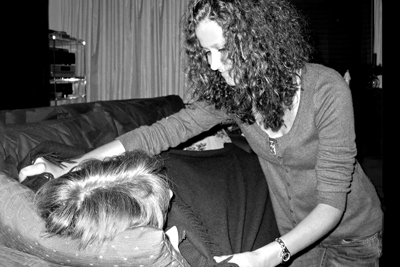Children Who Care – Global Perspectives on Children’s Hidden Care-Giving Roles within their Families
 Children and young people have been increasingly spending their time in a position which grows throughout the world. Tens of millions of them become informal caregivers of older members of their own family, often parents, grandparents or close relatives who are ill, disabled or in need of assistance, support and supervision.
Children and young people have been increasingly spending their time in a position which grows throughout the world. Tens of millions of them become informal caregivers of older members of their own family, often parents, grandparents or close relatives who are ill, disabled or in need of assistance, support and supervision.
Studies in this area, especially in the UK, Australia, the United States and sub-Saharan Africa, show that there is a diversity of social policies evolving to support these unpaid young care providers. However, it remains a hidden world which lacks global visibility and more knowledge on the theme.
Professor Saul Becker, Pro-Vice-Chancellor at the University of Birmingham and a specialist in this line of research, will address the theme at the conference Children Who Care – Global Perspectives on Children’s Hidden Care-Giving Roles within their Families, that will take place on October 21, in the IEA's Events Room, from 9.30 am to 12 pm. Ana Lydia Sawaya, coordinator of the IEA's Nutrition and Poverty Research Group and a professor at UNIFESP, will participate as a debater.
Becker's work has influenced the academic debate and the implementation of public policies and practices that are designed to meet the needs of young carers. In his speech, he will explore the hidden worlds of children who provide assistance and care to adults, showing how and why some countries have identified and legislated this role as that of a specific group that requires support and intervention. In most countries, these children and young people remain hidden, invisible and isolated, with negative consequences for their lives, families and society as a whole.
Studies in the area suggest that the informal care provided by the young in developed and developing nations can be located along a continuous flow of care. They also show that these young people have much in common, regardless of where they live or how the social security systems of their countries are developed. Thus, there is a global need for these young people to get recognized, identified, analyzed and assisted as a distinct group of "vulnerable children".
Through its Institute of Advanced Studies, the University of Birmingham is linked to the University-Based Institute of Advanced Studies (UBIAS), a network that brings together 34 institutes for advanced studies of the whole world. Created in 2010, it aims to promote the scientific exchange between generations, disciplines and cultures.
